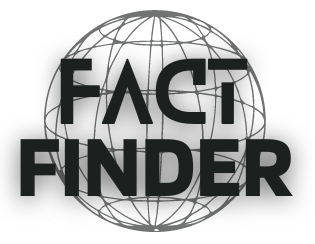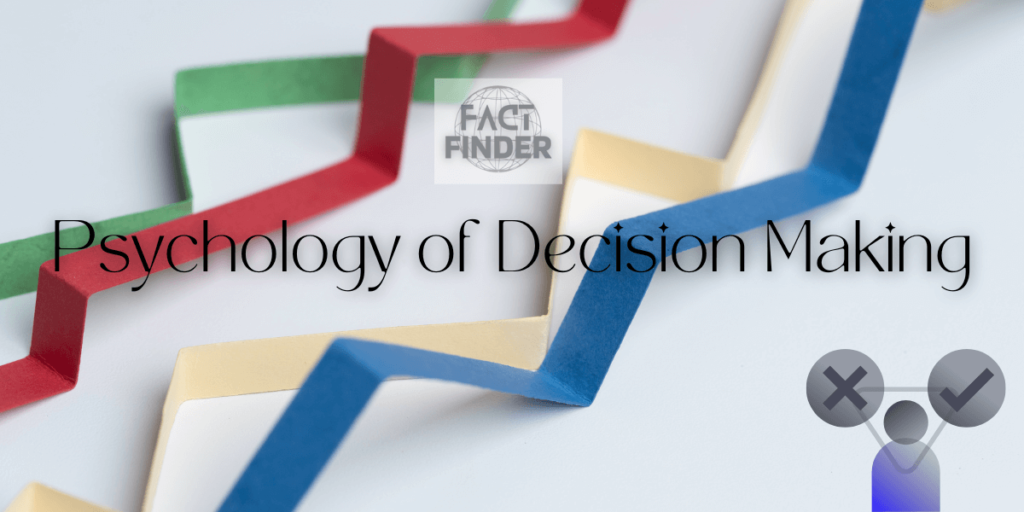Understanding the intricate workings of decision-making model has been a subject of fascination for psychologists and researchers alike. From selecting a simple meal at a restaurant to making life-altering choices, our decisions are governed by a complex interplay of factors that shape our thought processes. In this article, we delve into the psychology of decision-making, shedding light on the various factors that wield their influence over our choices.
The Role of Emotions in Decision Making
“The Role of Emotions in Decision Making” explores how emotions influence the decision-making process. Emotions play a significant role in guiding our choices, as they can shape our preferences, motivations, and perceptions.
Positive emotions, such as happiness and excitement, can lead to risk-taking behaviour and encourage exploration in decision making. They can also enhance creativity and open-mindedness, leading to more innovative choices. On the other hand, negative emotions like fear and sadness can result in avoidance or cautious decision making. Anger, too, can influence decision making, sometimes leading to impulsive or aggressive choices.
Emotional intelligence, which involves the ability to recognize, understand, and manage emotions, also plays a crucial role in decision making. Individuals with higher emotional intelligence are better equipped to regulate their emotions during the decision-making process, leading to more effective and rational choices.
Emotions can also interact with cognitive biases, which are systematic errors in thinking, in decision making. For example, confirmation bias, which is the tendency to seek out information that confirms pre-existing beliefs, can be influenced by emotions. Similarly, anchoring bias, which is the tendency to rely too heavily on the first piece of information encountered, can be influenced by emotional priming.
Understanding the role of emotions has practical applications in various domains. In marketing, emotional appeals can be used to influence consumer decision making. In leadership, emotional intelligence can enhance decision making within organizations. Overall, recognizing and managing emotions can lead to more informed and well-rounded decision making.
The Role of Emotions in Decision Making
The role of emotions in decision making model is that explores how our emotions influence the choices we make. Emotions play a crucial role in the decision-making process, as they can shape our preferences, motivations, and perceptions.
Positive emotions, such as happiness and excitement, can lead us to take risks and explore new options in decision making. They can also enhance our creativity and open-mindedness, allowing us to consider innovative choices. Conversely, negative emotions like fear and sadness can result in avoidance or cautious decision making. Anger, too, can impact decision making, sometimes leading to impulsive or aggressive choices.
Emotional intelligence, which involves recognizing, understanding, and managing emotions, also plays a significant role in decision making. People with higher emotional intelligence are better equipped to regulate their emotions during the decision-making process, leading to more effective and rational choices.
Emotions can interact with cognitive biases, which are systematic errors in thinking, during decision making. For instance, confirmation bias, the tendency to seek out information that confirms preexisting beliefs, can be influenced by emotions. Similarly, anchoring bias, the tendency to rely too heavily on the first piece of information encountered, can be influenced by emotional priming.
Understanding the role of emotions in decision making has practical applications in various areas. In marketing, emotional appeals can be used to influence consumer decision making. In leadership, emotional intelligence can enhance decision making within organizations. Overall, recognizing and managing emotions can lead to more informed and well-rounded decision making model.
Cognitive Biases and Decision Making
The influence of social factors in decision making refers to how our choices are influenced by the presence and actions of others in our social environment. Humans are inherently social beings, and our decisions are often influenced by the social context in which we find ourselves.
Social factors can have a significant impact on decision making in several ways. One important influence is social norms, which are the unwritten rules and expectations of behaviour within a particular group or society. These norms can shape our decisions by providing guidance on what is considered acceptable or appropriate. We may conform to social norms to avoid social disapproval or to gain social acceptance.
Another social factor that influences decision making is social pressure. This can include explicit pressure from others to make a particular choice or implicit pressure through the observation of others’ behaviour. We may conform to social pressure to fit in with a group or to avoid conflict or rejection.
The presence of authority figures or leaders can also influence decision making. We may be more likely to follow the decisions or suggestions of those in positions of power or authority due to their perceived expertise or influence.
Furthermore, social influence can impact decision making through the process of social comparison. We often compare our choices and behaviours to those of others, seeking validation or reassurance. This can lead to a tendency to conform to the choices of others or to align our decisions with what is perceived as the norm.
Social factors in decision making can have both positive and negative consequences. On one hand, social influence can provide valuable information and guidance, helping us make better decisions. On the other hand, it can also lead to conformity, groupthink, or the suppression of individual opinions and critical thinking.
Understanding the influence of social factors in decision making model is important as it helps us recognize and evaluate the impact of social pressures and norms on our choices. It also highlights the need to balance social influences with our own individual values, beliefs, and goals. By being aware of these social influences, we can make more informed and autonomous decisions that align with our own best interests.
The Power of Decision Fatigue
The power of decision fatigue in decision making refers to the phenomenon where the quality of our decisions deteriorates as we make more choices over time. Decision fatigue occurs when the mental resources required for decision making become depleted, resulting in poorer decision-making abilities.
Throughout the day, we are faced with numerous decisions, both big and small. Each decision requires mental effort, attention, and self-control. As we make more and more decisions, our cognitive resources become drained, leading to decision fatigue.
Decision fatigue can have a significant impact on the choices we make. When we are mentally fatigued, we tend to take shortcuts, rely on heuristics, or make impulsive decisions rather than carefully considering all available options. We may become more prone to making errors, overlooking important information, or giving in to immediate gratification.
One reason for decision fatigue is that decision making consumes glucose, which is a vital energy source for the brain. As our glucose levels decrease, our decision-making abilities decline. This is why we often experience decision fatigue after extended periods of decision making or when we are physically tired or hungry.
Decision fatigue can also be influenced by the complexity and importance of the decisions we face. The more complex or significant a decision is, the more mental effort it requires, and the faster decision fatigue sets in.
Understanding the power of decision fatigue is crucial for improving decision-making processes. It highlights the importance of managing our cognitive resources effectively and taking steps to mitigate decision fatigue. This can involve strategies such as prioritizing important decisions earlier in the day when mental resources are still abundant, automating routine or low-stakes decisions, and taking regular breaks to recharge our cognitive abilities.
Additionally, recognizing decision fatigue in ourselves and others can help us make allowances for its effects. For example, leaders can structure their organizations to minimize unnecessary decision making and provide support or resources to alleviate decision fatigue among their team members.
Overall, decision fatigue is a powerful force that can impair our decision-making model abilities and lead to suboptimal choices. By understanding its impact and implementing strategies to mitigate its effects, we can make more informed and effective decisions, especially when faced with a high volume or complexity of choices.
The Role of Intuition and Gut Feeling
Intuition is often described as a “gut feeling” or a sense of knowing without conscious reasoning.
Intuition can play a significant role in decision making model, particularly in situations where there is limited information or time for careful analysis. It is a rapid and automatic process that draws on our past experiences, knowledge, and emotions to provide quick judgments or decisions.
One way intuition influences decision making is by helping us recognize patterns or make connections that may not be immediately apparent. Our subconscious mind can process vast amounts of information and draw on past experiences to identify relevant patterns or similarities. This can lead to intuitive insights or hunches that guide our decision making.
Intuition can also be influenced by emotional responses. Our emotions can serve as valuable cues or signals, providing information about our preferences, values, or potential risks. Gut feelings often arise from these emotional responses and can guide us towards decisions that align with our deeper needs or desires.
Furthermore, intuition can be particularly useful in complex or uncertain situations. When faced with overwhelming information or conflicting data, relying on intuition can help simplify the decision-making model and provide a sense of clarity. Intuition can cut through the noise and help us prioritize what truly matters.
However, it is important to note that intuition is not infallible. It can be influenced by biases, personal beliefs, or inaccurate perceptions. Sometimes, intuition may lead to irrational or suboptimal decisions. Therefore, it is crucial to balance intuitive insights with critical thinking and analysis.
Intuition can be developed and honed through experience, reflection, and self-awareness. By paying attention to our intuitive responses and reflecting on their accuracy, we can improve our ability to rely on intuition.
In conclusion, the role of intuition and gut feeling is a valuable aspect of our cognitive processes. It can provide quick insights, help us navigate complex situations, and guide us towards decisions that align with our deeper needs and values. By combining intuition with critical thinking and analysis, we can make more informed and well-rounded decisions.
The Paradox of Choice
In today’s consumer-driven society, we are constantly bombarded with a vast array of choices in various aspects of our lives, such as selecting products, career paths, or even life partners. On the surface, this abundance of options might seem liberating, offering us the freedom to find the perfect fit. However, the paradox of choice suggests that too much choice can overwhelm and paralyze us.
One reason for this paradox is the cognitive burden associated with evaluating multiple options. When faced with numerous choices, we need to invest time and effort in gathering information, comparing alternatives, and predicting potential outcomes. This process can be mentally exhausting and lead to decision fatigue, as discussed earlier.
Moreover, having too many choices can lead to decision paralysis. With an overwhelming number of options, we may fear making the wrong choice or experiencing regret. This fear can hinder our ability to make decisions, leaving us stuck in a state of indecision or constantly second-guessing our choices.
The paradox of choice also suggests that having more options does not necessarily result in greater satisfaction. In fact, research has shown that an excessive number of choices can lead to increased expectations and a higher likelihood of regret. When there are numerous alternatives available, we may constantly wonder if we made the best possible choice or if there was a better option out there. This can diminish our overall satisfaction with the chosen option.
To navigate the paradox of choice, it is important to find a balance between having enough options to make an informed decision and avoiding decision overload. One approach is to limit the number of choices by setting specific criteria or preferences. This can help narrow down the options and make the decision-making model more manageable.
Additionally, it can be helpful to focus on what truly matters to us and prioritize our values and goals. By identifying our core needs and preferences, we can filter out irrelevant choices and focus on options that align with our priorities.
Ultimately, understanding the paradox of choice can help us make more effective decisions. By being mindful of the potential downsides of excessive options, we can navigate decision-making processes with less stress and increase our chances of making choices that lead to greater satisfaction.
The Impact of Personal Beliefs and Values
Our personal beliefs and values serve as guiding principles that influence the decisions we make. For example, an individual with a strong environmental ethos is more likely to make eco-conscious choices in their daily lives. Understanding our core beliefs and values can aid us in aligning our decisions with what truly matters to us, leading to greater satisfaction and fulfilment in life.
Conclusion
In conclusion, the psychology of decision-making model is a multifaceted subject, encompassing emotions, biases, social influences, and more. By unravelling the factors that influence our choices, we can gain valuable insights into ourselves and others, fostering more conscious and purposeful decision-making. From managing decision fatigue to leveraging intuition, understanding these psychological aspects empowers us to make better choices, not only for ourselves but also for the greater good. So the next time you find yourself faced with a decision, take a moment to reflect on the underlying factors at play and make a choice that aligns with your true self.
Follow us on Facebook







